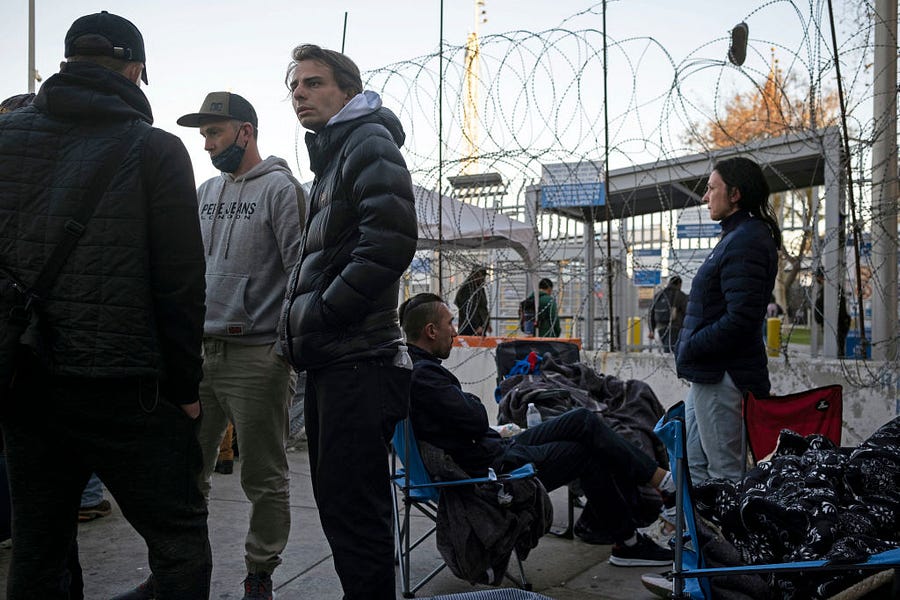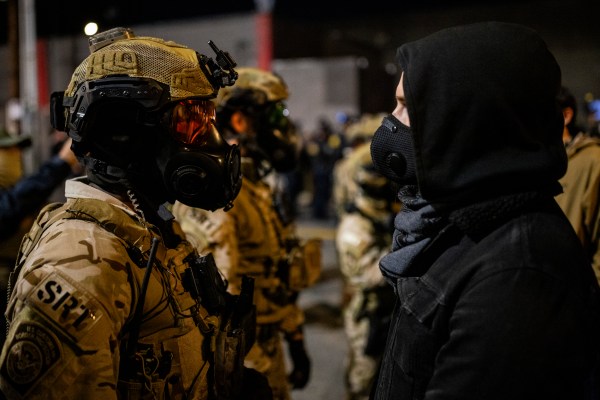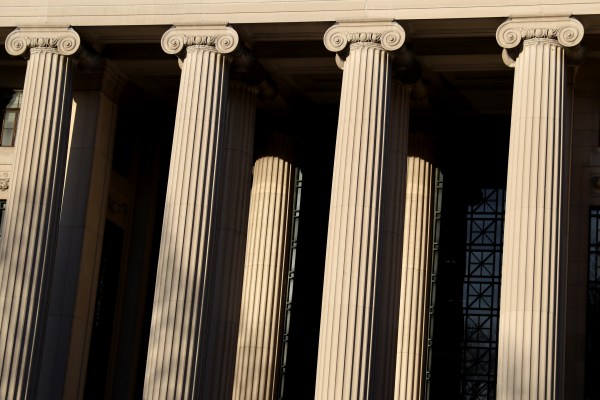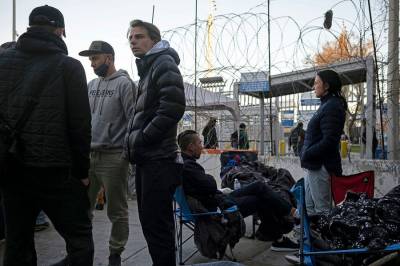Russia’s war on Ukraine has unleashed a humanitarian tsunami of more than 4.3 million refugees to neighboring countries in Europe—a number growing by about 40,000 a day for the last week.* The European Union is stepping up to welcome the Ukrainians, and the U.K. and U.S., while less generous in opening their borders to those fleeing the war zone, are nonetheless joining the effort. The welcome these Ukrainians are receiving is a testament to the generosity of the liberal democracies that are receiving them, but the United States should be opening its doors even wider.
The Biden administration should actively seek out highly skilled laborers leaving not just Ukraine but the wider region, including ordinary Russians and Belarusians fleeing their countries. Depriving Russia and Belarus of highly skilled labor would strike a blow against our adversaries and simultaneously strengthen the present—and future—American economy.
Increasing numbers of highly skilled individuals are fleeing the conflict zone. According to the Russian Association for Electronic Communications, between 50,000 and 70,000 information technology specialists have already left Russia since the war started. An additional 100,000 are likely to depart before April 30. This is not a new trend (since 2020, 20 percent of Belarusian IT workers—about 20,000—have left the country for Poland), but Western sanctions on Russia and its allies are likely to accelerate the exodus of skilled laborers.
This outflow of highly skilled human capital is coming at a good time for the United States and its economy. A recent report found that there were nearly 400,000 tech-related job openings in February 2022. Meanwhile, data show that American universities annually graduate only about 89,000 computer science students—less than a quarter of total openings—leading to a chronic dearth of workers.
It’s difficult to overstate the impact skilled work scarcity has on American economic growth and competitiveness. In today’s economy, immigrants represent approximately a quarter of all STEM workers and 34 percent of U.S. prime-working-age residents with a college, graduate, or professional degree. Since 1901, more than one-third of American Nobel laureates in chemistry, medicine, economics, and physics have been immigrants. In more recent history, immigrants have accounted for two-thirds of America’s STEM occupation growth. As a result of these talent flows, high-tech industries in the U.S. make up about 12 percent of the total workforce, but generate almost 23 percent of the nation’s gross domestic product.
Worker for worker, no other sector has that kind of economic throw-weight. Wages also tend to be higher in high-tech jobs, and those wages tend to drive higher pay for everyone, including lower-skilled workers. In other words, a shortage of skilled workers in fields like data science, artificial intelligence, machine learning, cloud engineering, and others is a labor constraint that quite literally holds back the entire economy. By logical extension, adding to the nation’s human capital base by welcoming Russian, Belarussian, and Ukrainian scientists can act as an economic force multiplier supporting innovation and growth relative to China and other rivals.
President Biden has the tools he needs to welcome all skilled Russians who want to flee under the humanitarian or significant public benefit parole system, which gives him broad authority to accept immigrants. To be sure, significant streamlining is needed—as many of the Afghans who have tried to access U.S. immigration after the fall of Kabul have discovered. Where there’s will, however, a way can almost always be found. The America COMPETES Act and other reforms to skilled legal immigration, such as expanding and deregulating visas, would only help Russians indirectly—but those provisions are still worth pursuing in boosting the arrival of highly skilled immigrants.
We should welcome Russian skilled workers today as previous generations welcomed German and Soviet defectors during the 20th century with the effect of weakening our adversaries while strengthening the West. They would fill valuable niches in the U.S. economy and drain geopolitical adversaries of vital skilled technicians while upholding the humanitarian values that we cherish. In doing so, we can simultaneously do well for our economy while doing good for the world.
*Update, April 7, 2022: The piece has been updated with the latest numbers of Ukrainian refugees.
Brent Orrell is a senior fellow at the American Enterprise Institute and a member of the U.S. Chamber of Commerce Commission on Competition, Inclusion, and Innovation in Artificial Intelligence. Alex Nowrasteh is the director of economic and social policy studies at the Cato Institute.






Please note that we at The Dispatch hold ourselves, our work, and our commenters to a higher standard than other places on the internet. We welcome comments that foster genuine debate or discussion—including comments critical of us or our work—but responses that include ad hominem attacks on fellow Dispatch members or are intended to stoke fear and anger may be moderated.
With your membership, you only have the ability to comment on The Morning Dispatch articles. Consider upgrading to join the conversation everywhere.